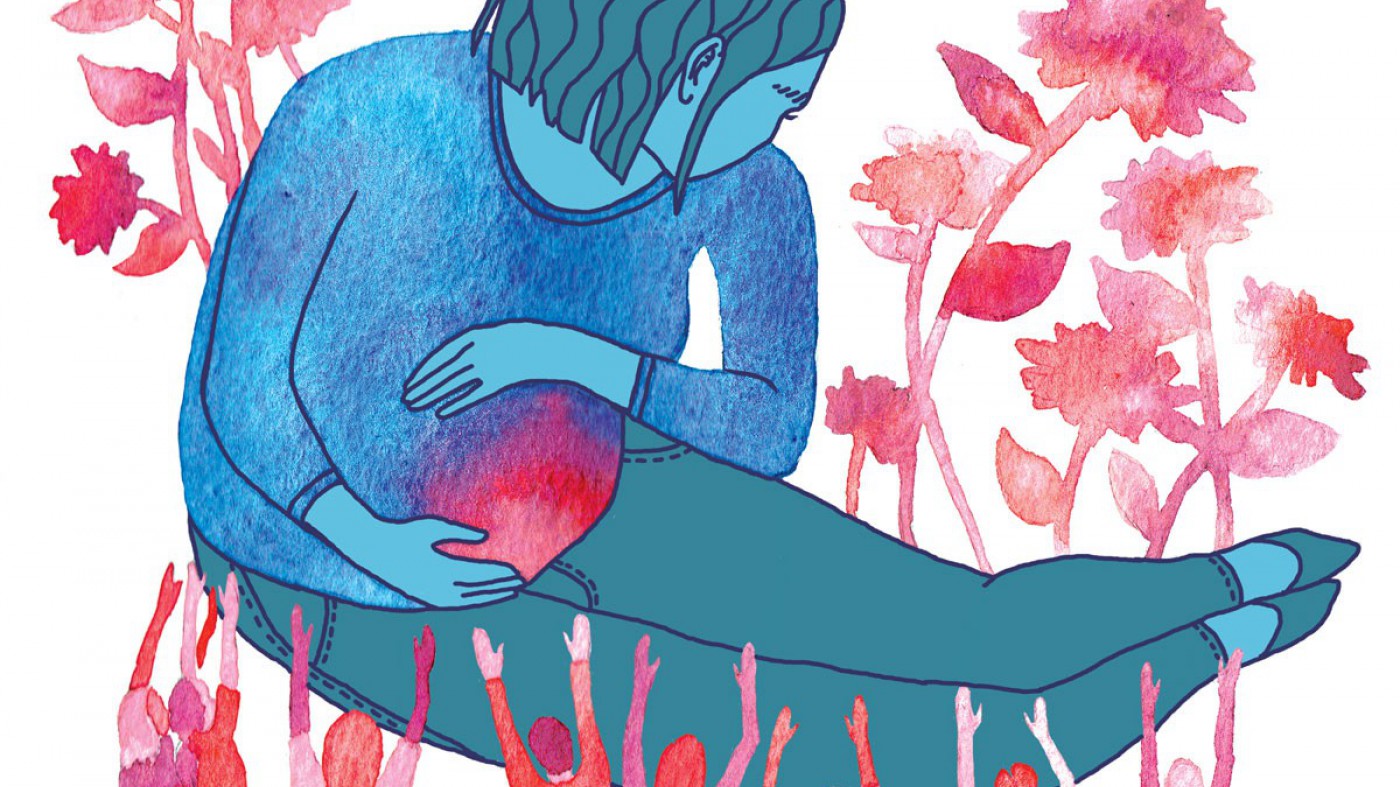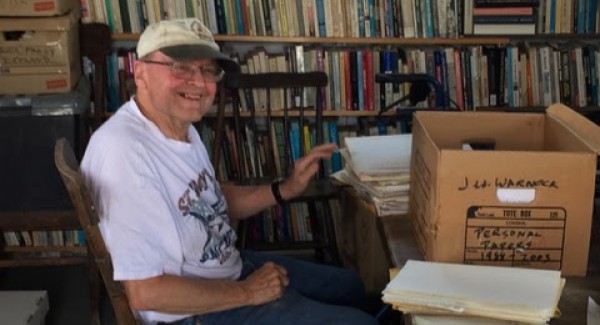The sorry state of abortion access in Saskatchewan

Marne Grahlman
While threats and restrictions to reproductive freedom are deeply rooted in misogyny and the patriarchal need to control women’s bodies, we recognize that trans men and non-binary people also become pregnant and require access to abortion care. Out of respect for that reality, we will refer to “pregnant people,” except where we are referring to specific situations, quoting interviewees, or referencing the language used in law.
It has been more than 30 years since the Supreme Court of Canada’s decision in R. v. Morgentaler found Canada’s anti-abortion laws to be such an egregious overreach of state power that they violate Section 7 of the Charter of Rights and Freedoms, the right to “life, liberty, and security of the person.” Since then, under the law, abortion has been treated as what it is: a morally and ethically neutral medical treatment. But while the decision ostensibly means that any pregnant person should be able to access medical (that is, induced by a drug) or surgical abortions at any time, the nature of the Canadian health-care system, which puts control of services in the hands of the provinces, means that abortion care is a patchwork that leaves many pregnant Canadians – especially those who are poor, Indigenous, young, or in rural and remote communities – to endure unwanted pregnancies.
“One hundred per cent [access] is a huge issue. Saskatoon is the most northern point you can access a surgical abortion.”
Natalya Mason, head of education and outreach at Saskatoon Sexual Health Clinic, says that the situation is particularly dire in Saskatchewan. “One hundred per cent [access] is a huge issue. Saskatoon is the most northern point you can access a surgical abortion,” she says of Saskatchewan’s largest city, where abortion is available for people who have been pregnant for up to 12 weeks. Fewer than half of the province’s 1.2 million residents live in Regina and Saskatoon, though – the only places where surgical abortion is offered. Roughly 37,000 residents live in the North, an administrative district that is 250 kilometres from Saskatoon at its southernmost border and more than 1,000 kilometres – a 14-hour drive – at its northernmost point.
And since the Sask Party cut the Saskatchewan Transportation Company in 2017, “[a]ccess to care is [another] issue that’s impacted by a lack of transportation strategy,” says Regina Lakeview NDP MLA Carla Beck. “People who don’t have access to vehicles and transportation can’t get to appointments, they can’t get to hospitals. They can’t get care.”
And the problem becomes even more acute when people must act on short notice. “If you’re travelling from a rural or remote community […] that tight time frame [of 12 weeks or less] puts a lot of barriers in place for people to access those services,” Mason says. She adds that although the Saskatchewan government recently caved to pressure and began to universally cover the abortion pill Mifegymiso (Saskatchewan was the last province in the country to do so), the drug can only be prescribed up to nine weeks after conception, a period of time too short for many people to even realize they’re pregnant. For those who find out in time, inadequate transportation options may prevent them from getting to a doctor or a pharmacist before their right to choose is taken by the limitations of the state health care apparatus.
Kathy Dawson, a board member of Abortion Rights Coalition of Canada (ARCC) and Alberta Pro-Choice Coalition, says that in Alberta – where access to abortion is similarly restricted – they’ve created a kind of “underground railroad” for people who require abortions but cannot afford to travel to Edmonton or Calgary, the only two cities where Albertans can access them. “We’ll find them a spot to stay in the city, we’ll find them a ride down,” she says. It’s not clear if the same thing exists in Saskatchewan – no one interviewed for this story had heard of one – but even if it did, Dawson says that it doesn’t fully solve the access problem.
“Ultimately, if you’re 16 years old and you’re pregnant and you want an abortion and you’re up North, and your parents don’t support you, you are probably going to be forced to continue your pregnancy. Because how do you access this in private without notifying your parents, your relatives, without letting the school know you’re going to be away for a few days?”
The difficulty many Saskatchewan residents have in reaching the only places where abortions are performed, combined with the time frame – 12 weeks in Saskatoon and 20 weeks in Regina – means that one of the goals of the anti-choice movement – to prevent abortions later in a pregnancy – is effectively already in place. And if you consider the fact that transportation and accommodations are not covered for people to travel to these centres, the anti-choice goal of defunding abortion care is well on its way to being a reality. Abortion may be legal, but it is not necessarily possible.
The difficulty many Saskatchewan residents have in reaching the only places where abortions are performed, combined with the time frame means that one of the goals of the anti-choice movement – to prevent abortions later in a pregnancy – is effectively already in place.
Banning abortions later in a pregnancy is a battle that the anti-choice movement sees as low-hanging fruit – and looking at the time frames in Regina and Saskatoon, rightfully so. But Dawson says that later abortions – those that are performed after 21 weeks and comprise just over 3 per cent of all abortions reported by Canadian hospitals each year – are often the ones that are the most needed, and the most tragic. “If you have a 10-year-old daughter, or a daughter with disabilities, you may not know she’s pregnant until she starts to show,” Dawson says. She also tells the story of a friend who discovered that her developing fetus had no brain. “She had to deliver that pregnancy,” Dawson says. “No one wants to acknowledge the psychological harm that comes from people patting your belly and asking, ‘when’s the happy day,’ when there is no happy day.”
Another area where anti-abortion groups like RightNow, We Need a Law, Saskatchewan Pro-Life, and Campaign Life Coalition see space to interfere with reproductive justice is in proposing “Unborn Victims of Crime” acts, something Dawson says is an attempt to “get fetal personhood on the books.” Although no such laws exist in Canada, in 2016, Saskatchewan’s own MP Cathay Wagantall introduced Bill C-225 – an act that would see the injury or death of a fetus during an offence made a Criminal Code violation. Only three Conservatives – Michael Chong, Sylvie Boucher, and Peter Kent – voted against the bill.
Like the language used in private member’s bills like Wagantall’s, Dawson says the outraged messaging from anti-choice groups over abortion is increasingly delivered via the “co-opting of feminist [and] human rights language” – arguing that women are oppressed and pressured into having abortions because society tells them that having children is “a weakness.” They claim that sex-selective abortion, which is part of the “larger cultural devaluing of women” and “post-birth abortion,” which is already a Criminal Code violation referred to as “murder,” are on the rise in Canada. Dawson calls it hypocritical. “A woman is killed by her intimate partner every two [and a half] days in Canada. Where’s the [anti-abortion groups’] outrage over that? Women are still dying delivering pregnancies – why aren’t [they] talking about that?”
Although neither Dawson nor Mason believe that the provincial government will attempt to criminalize abortion – “It’s a challenge to the charter, and it doesn’t seem like it’s actually worth it for any of the politicians,” Mason says – the fact remains that there are many ways in which access can be – and already has been – limited. This is particularly troubling in Saskatchewan, where the provincial government has a deeply concerning record when it comes to reproductive justice.
When the ruling Saskatchewan Party held a leadership race after Brad Wall stepped down in 2018, the topic of abortion became a wedge issue. National anti-abortion group RightNow ranked Sask Party leadership candidates based on how strongly they opposed abortion, and Scott Moe was second only to Ken Cheveldayoff. Moreover, RightNow recruited new party members to elect anti-abortion candidates, so when Cheveldayoff was eliminated on the fourth ballot, 1.6 times as many of his voters went to Moe as to Alanna Koch. And although there are obviously other factors – including probable misogyny in an old boys’ party – that contributed to Moe’s win, it is telling that he won the nomination over Koch, who declined to be interviewed by RightNow.
“A woman is killed by her intimate partner every two [and a half] days in Canada. Where’s the [anti-abortion groups’] outrage over that? Women are still dying delivering pregnancies – why aren’t [they] talking about that?”
Although Moe – who cannot get pregnant but is somehow “personally” anti-abortion – has taken care not to condemn abortion outright, RightNow claims that in an interview with him, he agreed that there were “opportunities” for parental consent legislation. Parental consent – which is exactly what it sounds like – is a frequently sought piece of anti-choice legislation that robs pregnant minors of their personal autonomy and hands it to their guardians. Given that around 85 per cent of sexual assault survivors know their abuser, and 38 per cent of known abusers of youth are family members, this could very well put a minor’s right to choose into the hands of the very person who got them pregnant in the first place. Never mind that the choice to continue a pregnancy should lie with the pregnant person alone.
In April, the then-minister for Rural and Remote Health – the places where pregnant people are most vulnerable to the province’s access issues – Greg Ottenbreit, told an anti-abortion group that he would “do what I can in my professional capacity” to deny pregnant people reproductive justice. Though he later responded to a reporter’s question about whether he agrees with Canadian law allowing access to abortions by saying “my record is supportive of the law of the land,” the minister appeared to be in no hurry to improve access to this critical aspect of care for the people he represented before he was shuffled out of the portfolio in August 2019.
Federally there are 10 homegrown anti-abortion MPs in Saskatchewan, including the federal Conservative Party leader Andrew Scheer, who represents Regina-Qu’Appelle. The Conservatives have said in their policy declaration that they will not support any legislation to regulate abortion, but other points are more revealing. The Conservative Party considers abortion, a morally and ethically neutral medical procedure, a matter of “moral conscience.” They support legislation to allow doctors, nurses, and unspecified “others” to refuse to treat patients who require abortion care. They also state that abortion should be eliminated from maternal health programs in countries that receive aid from Canada.
Perhaps most tellingly, they believe that there should be a three-year prohibition on embryonic stem cell research – wherein excess embryos from in vitro fertilization procedures are used to obtain stem cells for study – suggesting that they, like the anti-choice groups that endorse them, want to give embryos (and, by extension, fetuses) the rights of persons under the law, and in doing so, eliminate any need for abortion legislation. If a fetus is considered a person under law, abortion will automatically be treated as murder. It was fetal personhood laws that allowed Marshae Jones, who miscarried to after she was shot in the stomach, to be charged with manslaughter in Alabama.
Dawson says anti-choice policies are simply an extension of the violence and subjugation that women and gender-variant people already face in Canada today. “Anti-choice policies are about subjugating women and gender-diverse people,” she says emphatically. “They oppose us having autonomy over our own bodies. We’re still living in a patriarchal society where people in power aren’t comfortable with women having rights.”
Federally there are 10 homegrown anti-abortion MPs in Saskatchewan, including the federal Conservative Party leader Andrew Scheer, who represents Regina-Qu’Appelle.
This link between reproductive justice and the status of women and people who can get pregnant is particularly clear in Saskatchewan. Here, where infant mortality rates are the fourth-highest in the country and rates of serious maternity-related illnesses exceed the national average, where ministers for Rural and Remote Health can pledge to use their position to further the removal of the rights of half the population, where the health authority is being sued by more than 60 Indigenous women who were coerced into sterilization, we also have the highest rates of domestic and intimate partner violence in the country.
“Two times the national average,” says Beck, who worked as the assistant executive director of a Regina women’s shelter before entering politics. “Saskatchewan also has some concerning rates of sexual health issues. High rates of sexual abuse and sexual violence. High rates of sexually transmitted infections, one of the highest rates of teen pregnancy in the country. We’ve become complacent with these reports,” she says. “But we can’t let those numbers stand.”
Although it’s clear that the struggle for reproductive justice in Saskatchewan is ongoing, Dawson and Mason are both eager to talk about the victories. Dawson points to the changes made to the Canada Summer Jobs grants that initially saw anti-choice, anti-LGBTQ2S groups defunded. And she says that pro-choice groups like ARCC have had “some really good success” with getting advertisements for anti-abortion groups like crisis pregnancy centres taken down across the country. “We’ve been [reporting the ads] to ad standards and they’ve been ruling them as lying, misinforming, and disparaging women.” She says ARCC has also been working with major municipalities to reformulate standards to prevent these ads from going up in the first place. Mason, who is based out of Saskatoon, agrees that it’s been “years” since she saw an ad for crisis pregnancy centres in the city.
Dawson says the importance of these victories can’t be overstated: “The crisis pregnancy centre is how the anti-choice [groups] get mainstream funding.” Crisis pregnancy centres target pregnant women (“trans people don’t exist for them,” Dawson says) to persuade them to keep their unwanted pregnancies, as well as providing what they call “post-abortion counselling,” pregnancy testing, and “fetal-development presentations.”
It was fetal personhood laws that allowed Marshae Jones, who miscarried to after she was shot in the stomach, to be charged with manslaughter in Alabama.
“People who wouldn’t normally donate to an anti-choice group are swayed by their diaper programs, their maternity clothes programs. What they don’t understand is that they’re religious missions. You get your diapers, but it comes with a religious lesson.” Regina’s two crisis pregnancy centres – Options and Birthright – are both listed as registered charities with the Canada Revenue Agency, meaning donations to them are tax deductible. Mason says that Options – which lists “abstinence education” as one of its programs and has made targeted political donations in the past year – is expanding.
“They have a lot of private donors” who have raised money for the new, larger facilities, Mason says. Dawson adds that it’s difficult to determine exactly where the funding for these groups comes from: “we don’t know where they’re getting their money.” The crisis pregnancy centres are largely faceless – they don’t provide names of staff or if they even have staff. Until 2017 Birthright listed Karen Steranka – the woman in charge of “religious education” at St. Mary’s Roman Catholic Parish in Regina – as their public contact on their Government of Canada charitable donations page. They declared $28,593 in donations and $868 in “professional and consulting fees” in 2018. Options, which lists no one as a contact, declared $168,157 in receipted and non-receipted donations in 2018.
The other anti-choice groups – the ones that are not charities but political organizations like RightNow, We Need a Law, and Saskatchewan Pro-Life – have a surprisingly youthful face. Their sites prominently feature photos of young, mostly white, sign-bearing marchers. Dawson says it’s a “facade.”
“They’re using young Christian people, but if you go to March for Life, for example, it’s very much the Knights of Columbus – old white men. Lots of older women, and they will pick younger speakers, but it’s very much the older faces that are in charge,” she says, referring to Campaign Life Coalition’s series of anti-choice rallies held provincially and nationally every year. This year’s rallies were attended by Saskatchewan MPs Brad Trost and David Anderson in Ottawa and Moose Jaw North MLA Warren Michelson in Regina.
But for many of the young people who initially attend the anti-choice rallies, knowledge is power. “Once they get older and they have more life experience, a number of them turn away from the movement,” Dawson says.
“They see it’s not about women’s rights.”
Note: This article previously stated that in Regina, abortions are available to people who have been pregnant for up to 16 weeks. In fact, according to Dorian Kristmanson, a second trimester abortion provider at the Women’s Health Centre at the Regina General Hospital, abortions are available there up to 20 weeks.
Update, February 3, 2020: Carrie Dornstauder, executive director of maternal and children’s provincial programs for the Saskatchewan Health Authority, adds that – though rare – medical abortions are performed after 20 weeks of pregnancy if the pregnancy poses a risk to the fetus or pregnant parent. Dornstauder was not able to provide data about the number of medical abortions performed after 20 weeks "as it could lead to inadvertent identification of affected families."




